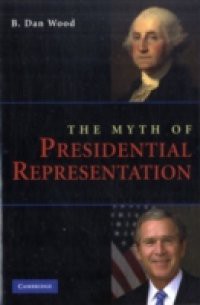The Myth of Presidential Representation evaluates the nature of American presidential representation, examining the strongly embedded belief - held by the country's founders, as well as current American political culture and social science theory - that presidents should represent the community at large. Citizens expect presidents to reflect prevailing public sentiment and compromise in the national interest. Social scientists express these same ideas through theoretical models depicting presidential behavior as driven by centrism and issue stances adhering to the median voter. Yet partisanship seems to be a dominant theme of modern American politics. Do American presidents adhere to a centrist model of representation as envisioned by the founders? Or, do presidents typically attempt to lead the public toward their own more partisan positions? If so, how successful are they? What are the consequences of centrist versus partisan presidential representation? The Myth of Presidential Representation addresses these questions both theoretically and empirically.

